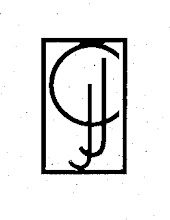However, all my animal reading of late informs me I’m hardly alone in this matter. Wherever the lives of humans and critters intersect, so, too, do quirky identifiers.
 Take my first cat, for example. She had NO name when I adopted her. After a round of serious decision-making, I gave her the nickname of one of my siblings: Precious. And it fit. Her tiny, snow-white body of ultrafine fur, her peridot eyes, her translucent pink ears, her troubled past and ultimate rescue—all pointed to a fragile creature whose quiet nature made her seem more of a porcelain figurine than a growing kitten. She truly was Precious. And though she never outgrew this name, she grew in to a few others: Miss P., Missy, Preciouroni (she LOVED pepperoni), Preciouronious, White Thang (after the tune “Wild Thing” and because one vet we took her to labeled her file with a large “W,” meaning she was “wild and uncontrollable”; oddly, this held true only for that particular vet clinic), Miss Thang, Blanche, Blanche du Chat, The Empathy Cat. Her Whiteness tolerated every nickname we dished out.
Take my first cat, for example. She had NO name when I adopted her. After a round of serious decision-making, I gave her the nickname of one of my siblings: Precious. And it fit. Her tiny, snow-white body of ultrafine fur, her peridot eyes, her translucent pink ears, her troubled past and ultimate rescue—all pointed to a fragile creature whose quiet nature made her seem more of a porcelain figurine than a growing kitten. She truly was Precious. And though she never outgrew this name, she grew in to a few others: Miss P., Missy, Preciouroni (she LOVED pepperoni), Preciouronious, White Thang (after the tune “Wild Thing” and because one vet we took her to labeled her file with a large “W,” meaning she was “wild and uncontrollable”; oddly, this held true only for that particular vet clinic), Miss Thang, Blanche, Blanche du Chat, The Empathy Cat. Her Whiteness tolerated every nickname we dished out.I thought we did well by her until I read “The Naming of Cats” by T. S. Eliot. The poet contends every cat should be given three formal names: 1) The common, sensible name—the one used daily; 2) A particular name, one that’s peculiar to your cat and shared by no other feline—one that’s used, perhaps, only on paper; and 3) The name only your cat knows and will never confess. As the poem goes:
“When you notice a cat in profound meditation,
The reason, I tell you, is always the same:
His mind is engaged in a rapt contemplation
Of the thought, of the thought, of the thought of his name…”
Oh my. I had no idea so much was at stake. I clearly failed my felines.
Some people think names don’t concern animals. It’s our tone of voice that motivates them to respond to us. “Pickle” or “Pumpkin” makes no difference; it’s how we say it that matters. But this line of thinking ignores both the intelligence of animals and their individual personalities.
Take Precious’s best friend, for example. When my husband gave the kitten to me, she could fit in the palm of my hand. (She could fit on top of a doorknob, too, but that’s another story.) Whenever I touched her, she purred—like the tiniest of racing engines. I named her InstaPurr, and for her entire life, anyone could rev her motor with the slightest touch.
InstaPurr garnered a long list of nicknames: Purr, Purrbator, Purrly Girl, Pumpkin, Dirtball (she was NOT a clean cat in her youth—ignored the litterbox and showed no interest in personal grooming), Sweet Pea, Binge and Purrge (yup—she ate, she vomited; it seemed like a game for her, her way of challenging me: “Ha! See if you can clean THIS up!”). She took all her names in stride save one. One word could throw her mood and incite her to yowl: Mabel.
Call her Mabel and she’d immediately do the opposite of whatever she was engaged in: jump out of your arms, walk away from nuzzling your ankles, stop purring. We couldn’t believe it; thought it a fluke at first. But soon we realized we could use the name to our advantage. Whenever Purr started to do something bad (she was the most ill-behaved pet we ever had), we would just say “Mabel” to her and she’d stop. “No,” “Don’t,” “Knock it off,” and every other typical reprimand had no effect on the cat, but call her “Mabel” and she’d retreat.
I don’t know what she heard in the name, but her reaction was clear and innate. It MEANT something to her. Purr was not a Mabel, regardless of our intonation. Purr taught us that words matter, even to nonhumans. Naming a creature demands thoughtfulness and vision. And if that creature is a feline, think Eliot and not Shakespeare—for the feline expects a “deep and inscrutable singular Name.”
[Photographs are from Freekibble, which you can access at the right of Lull to feed shelter cats with the click of a mouse.]




No comments:
Post a Comment